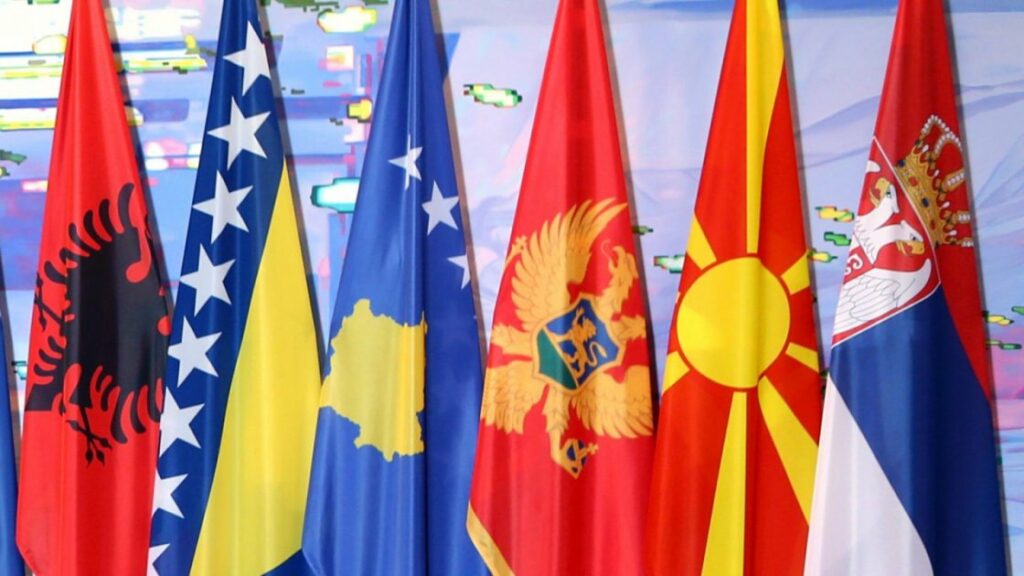In view of the massive upheaval in Europe caused by the war against Ukraine, the EU states must also radically rethink their Western Balkans policy and regain trust.
The massive changes in the European security structure required many European states to radically change the foreign and security policies they had previously practiced. Europe was divided over Ukraine and Russia, but this must not happen when dealing with Southeastern Europe.
The war forces a common position
Central and Eastern European and Baltic states have followed a different line on the subject of Russia and Ukraine than, for example, France or Germany. In the reaction to the renewed invasion of Ukraine, the EU and allies stood together. This cohesion in Europe is also sorely needed.
But a rift also runs through the enlargement policy. Not just along geographical lines, but between states that have a political will to integrate the Western Balkans into a united Europe and those that have no interest in the region.
This is dangerous, because the integration of the Western Balkan states into the European legal and value framework brings stability and security for the region and thus also for a united Europe.
Why Enlargement Policy?
First and foremost, enlargement is an opportunity that offers incentives to reform-oriented governments and, above all, perspectives to citizens. The EU control and the legal framework in particular offer better protection against corruption, for example, than if these countries were outside the EU.
Not to mention the positive economic aspects in the internal market.
There is no vacuum in geopolitics
But enlargement must also be seen as a security policy. Non-European actors are just waiting to massively expand and assert their influence in the region.
A danger, because these actors, who want to fill the vacuum in the Western Balkans, are mostly not driven by principles such as democracy and rule of law.
States dependent on or controlled by dictatorships on the EU border do not bring stability to Europe, quite the opposite. Europe must manage to support the states of the Western Balkans in being able to take their (economic, social, societal) destiny into their own hands. The example of Belarus shows where massive dependence on regimes leads.
On the other hand, the examples of the Baltic states and the Czech Republic show how successfully free states can develop within the framework of a united Europe. A model for success that needs to be strengthened.
This is in everyone's interest because: There is no geopolitical vacuum. If Europe is not present, then it is another power.
Europe is risking trust
But one of the most important points why EU enlargement has to become a priority again is the issue of trust. The way in which some European states deal with the citizens and reform-oriented politicians in the Western Balkans is capable of forfeiting any trust.
No matter which reforms are implemented, no matter how far a state goes - keyword name change - it always gets the door slammed in its face.
Thus, despite the fulfilled demands, Kosovo does not get the promised visa liberalization.
So the negotiations with North Macedonia are not started despite the name change. North Macedonia has been an applicant country since 2005 and the start of negotiations was recommended as early as 2009 – 13 years of blockades have passed since then.
Phrases and empty promises
If Europe continues to act with empty phrases and unfulfilled promises, reform-oriented politicians in the region will give up and the citizens will finally lose confidence in the European project. Nothing worse can happen than millions of people in south-eastern Europe - one of the most pro-European regions - turning away in frustration.
It should not be forgotten that accession negotiations that have already begun take many years. When it comes to accession negotiations, we are talking about a time frame of at least 10, if not 20 years. Young people who campaigned for EU accession in North Macedonia in 2005 may not experience it until they are 50. The first chapters of the negotiations were opened in 2012 with Montenegro, a candidate for accession to the EU since 2010. 10 years later, only three – out of thirty – chapters have been completed.
Enlargement Policy Booster
It therefore requires further willingness to implement reforms on the part of the applicants for membership, but also on the European side a "booster" to make enlargement policy a priority again.
Therefore, the Western Balkan countries should all take a step forward:
Negotiations with Serbia and Montenegro are to be intensified, and negotiations with North Macedonia and Albania are to be started. Kosovo and Bosnia-Herzegovina are to be given candidate status.
Concretely implemented reforms must lead to immediate progress in the negotiation process, and promises made, such as visa liberalization for Kosovo, must be kept by the European side.
Subsidiarity and diversity
After the EU is organized on a subsidiary basis and the regional and local levels in particular work less ideologically, but are more practice-oriented and willing to cooperate, the "bottom-up approach" and decentralization as well as strengthening local or regional self-government should also become essential criteria for progress in the enlargement negotiations .
Sincere interest is required
And last, but most importantly, EU countries are finally taking a real interest in the Southeastern Europe (Western Balkans) region again.
It is not enough, it is even counterproductive, to simply send money. You have to be interested in the region, in the problems, but also in what has already been achieved. Only then can people in the Western Balkans be certain that they are really taken seriously as part of the European family.


